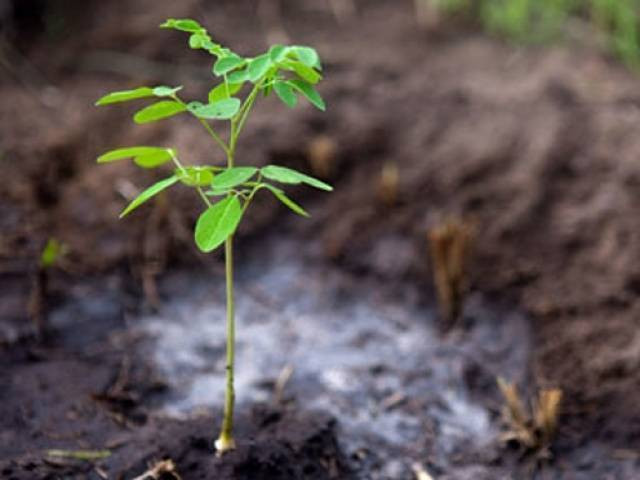LCS’ tree plantation drive hopes to boost ecosystem
Organiser says land where nothing will be constructed for years is to be chosen

PHOTO: REUTERS
This causes major temperature variations in the concrete jungle as compared to suburban areas. In an attempt to reduce the severity of the phenomenon which has the potential to cause harsher heat waves, the Lahore Conservation Society (LCS) has taken on the task of planting trees on unused grounds and land spaces where no development is expected in the coming decade.
Hundreds of trees chopped for metro bus in Islamabad
One of the key organisers of the LCS’s tree plantation drive, Ali Amjad, said the initiative was launched in 2015 with an open call to involve housing societies, schools and even small property owners to help plant indigenous species of trees that would eventually give shade and become a beneficial element of the urban ecosystem.
“We started this initiative in collaboration with the Citizen Foundation School and since then, have expanded the plantation drive to other local organisations and schools,” said Amjad.
The organiser said the main criteria for choosing a location is the availability of land where no construction will take place in the coming years. Also, it is crucial to take care of these trees. Amjad said that the current plantation campaign, which began in the first week of July and coincided with the monsoon season, involved planting trees at selected locations every weekend.
“We do not go for aesthetically pleasing shrubs, herbs or plants, since the choice of tree is based on their ecological importance in the region, in terms of oxygen purification, shade and air pollution control,” he explained.
According to Amjad, the LCS tried to promote local flora of the province such as sukhchain, neem, taali, amaltass, jamun, mango and shehtoot trees because these species allow birds to make nests and help sustain the bees. He was of the view that plantation trends in the city were not viable for the local ecosystem as since exotic species, such as the conocarpus, was being planted without taking into consideration its long-term effect on local flora and fauna.
Lahore losing trees by thousands
“The conocarpus shrub plant, commonly used for fencing purposes, grows very fast and does not survive for more than five years. Moreover, it does not even effectively purify the air, give fruit or attract the honey bees and butterflies,” he said.
The organiser said that this miscalculated trend of introducing exotic species is similar to the extensive plantation of the eucalyptus tree, commonly known as ‘safeday ka darakht'. It was brought into Pakistan from Australia in the 1960s without taking into consideration its effects on the environment. It had to be systematically removed a couple of decades later.
Published in The Express Tribune, July 26th, 2017.


















COMMENTS
Comments are moderated and generally will be posted if they are on-topic and not abusive.
For more information, please see our Comments FAQ